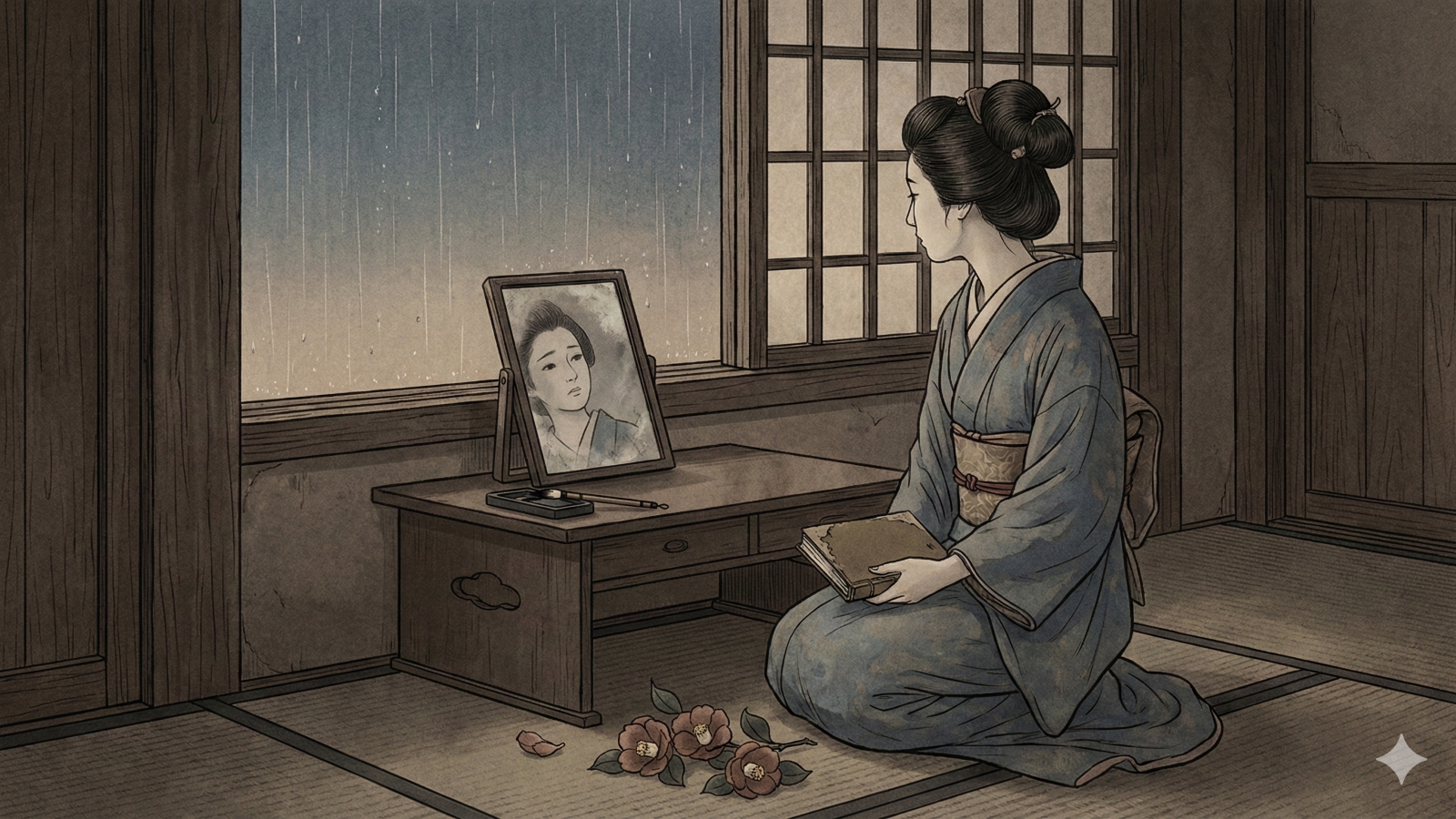How to Discern True Friends - Ancient Roman and Greek Sages on the Essence of Friendship and Trust
Can friendship exist in a relationship where the truth cannot be spoken? It is in times of adversity that a friend's true worth is tested. Through the words left by Cicero, Aristotle, Xenophon, and others, we explore the timeless core of "friendship" and "trust."

“nulla est igitur haec amicitia, cum alter verum audire non volt, alter ad mentiendum paratus est.”
When one party is unwilling to hear the truth and the other is prepared to lie, no friendship can exist there.
—— Cicero Laelius De Amicitia, 98
[Commentary]
Just as a cloudy mirror cannot reflect one’s image, can true friendship dwell in a relationship where false words are exchanged? Cicero, explaining the dangers of fawning over friends, penned these poignant words. According to him, a relationship that shuns truth and seeks only pleasant lies is not worthy of the name of friendship. The foundation of friendship requires an unwavering trust that allows for the exchange of frank words. These words quietly teach us that sincerity is the very soil in which amity is nurtured.
“amicus certus in re incerta cernitur”
A true friend is recognized in uncertain times.
—— Cicero Laelius De Amicitia, 64
[Commentary]
Is it not true that the person by your side when the wind is fair may not be in the same place when the storm hits? Quoting the ancient Roman poet Ennius, Cicero speaks of the difficulty of discerning true friends. A person’s true worth is tested not in times of prosperity, but when placed in the uncertain circumstances of hardship and adversity. This phrase, which states that the presence of a friend who offers unwavering trust becomes clear in difficult times, sharply pierces the essence of friendship. Adversity may indeed be the touchstone of friendship.
“sine amicitia vitam esse nullam”
Without friendship, there is no life.
—— Cicero Laelius De Amicitia, 86
[Commentary]
If you were to possess all the wealth and fame in the world, but had no friend to share it with, what color would that life appear to be? Cicero asserts that while there may be people who belittle other values like wealth, power, or pleasure, there is not a single person who denies the value of friendship. Even if placed by a god in a solitary paradise where everything is provided, all joy would lose its brilliance without someone to talk to. These brief words powerfully show that friendship is not just an option in life, but a fundamental requirement for humans to live as humans. It is the communion with a trustworthy friend that gives life meaning and warmth.
“obsequium amicos, veritas odium parit.”
Flattery creates friends, truth creates hatred.
—— Cicero Laelius De Amicitia, 89
[Commentary]
Sweet words attract people, while the bitter truth pushes them away. Cicero, quoting a famous line from the playwright Terence, discusses the difficulty of frankness in friendship. People tend to welcome pleasant flattery, but sometimes it is the painful truth that is essential to save a friend from ruin. This maxim presents the paradox that a true relationship of trust is built upon the resolve to speak the truth for a friend’s sake, even at the risk of being hated. It is a passage that makes one think deeply about the sweetness and bitterness of friendship.
“οὐκ ἔστι δʼ ἄνευ πίστεως φιλία βέβαιος· ἡ δὲ πίστις οὐκ ἄνευ χρόνου.”
There is no firm friendship without trust, and trust is not born without time.
—— Aristotle Eudemian Ethics, 1237b
[Commentary]
The plant called friendship does not grow into a great tree overnight. Aristotle wrote these words while discussing the nature of “friendship based on virtue,” which he considered the highest form of friendship. According to him, a truly solid friendship is not formed lightly but is established only after passing the test of time. It is in the process of this trial that “trust” (pistis) for one another is nurtured. This phrase suggests that friendship, trust, and time are inextricably linked. To build a true bond, it may be necessary to curb impatience and have the wisdom to wait patiently for time to do its work.
“ἡ φιλία μέγιστον ἀγαθὸν καὶ ἥδιστον ἀνθρώποις ἐστί”
Friendship is the greatest good and the most pleasant thing for humans.
—— Xenophon Hiero, 3.3
[Commentary]
What is the greatest treasure on the journey of life? The ancient Greek writer Xenophon has a character in his dialogue pose this question, indicating the answer is “friendship” (philia). Those who are loved naturally attract the sharing of joy and mutual help in hardship from their friends. It is a good that arises spontaneously, a blessing from gods and men. However, the tyrant, who rules people by force and is constantly plagued by suspicion, is said to be in the place farthest from this “greatest good” for humans. These words powerfully declare the supreme value of human relationships based on trust, which can never be obtained through power or wealth.
“πειρᾶσθαι ὡς πλείστου ἄξιος εἶναι, ἵνα ἧττον αὐτὸν οἱ φίλοι προδιδῶσιν.”
One should strive to be as worthy as possible, so that one’s friends are less likely to betray them.
—— Xenophon Memorabilia, 2.5.4
[Commentary]
Is friendship not something to be waited for, but something to be built by oneself? Upon hearing someone lament being betrayed by a friend, Socrates offers a unique perspective. He asks whether a worthless friend, like a worthless servant sold cheaply, might also be easily abandoned. These words are a stern yet practical teaching: if you seek trust from your friends, you should first strive to become a “valuable” person to them. It suggests that the path to building unwavering friendship and trust lies not in expecting things from others, but in enhancing one’s own human worth.
“φύσει γὰρ ἔχουσιν οἱ ἄνθρωποι τὰ μὲν φιλικά”
For humans by nature possess a friendly disposition.
—— Xenophon Memorabilia, 2.6.21
[Commentary]
Why is it that people, while sometimes quarreling, cannot help but seek friends? In discussing the complexities of human relationships, Socrates offers this fundamental insight. He says that while humans have a “hostile” aspect, competing for the same things, they are also inherently equipped with a “friendly” nature that makes them need and help one another. These words teach us that friendship and trust are not mere social customs, but are deeply rooted in human nature. Even if conflicts arise, the impulse to believe in people and form bonds may be our most natural state.
“ἐπεὶ δʼ ἡ ἀληθινὴ φιλία τρία ζητεῖ μάλιστα, τὴν ἀρετὴν ὡς καλόν, καὶ τὴν συνήθειαν ὡς ἡδύ, καὶ τὴν χρείαν ὡς ἀναγκαῖον”
True friendship seeks three things above all- virtue as something noble, intimacy as something pleasant, and utility as something necessary.
—— Plutarch On Having Many Friends, 3
[Commentary]
What pillars support the structure called friendship? In his discourse on the pros and cons of having many friends, Plutarch presents the three elements that constitute true friendship. They are the other person’s “virtue” as an object of respect, the “intimacy” of time spent together, and the “utility” of being helpful in times of need. This passage suggests that friendship is not born from a single motive but is completed only when these three elements are in harmony. A trustworthy friend may be someone who possesses all three qualities: a person whose character you can respect, with whom you enjoy spending time, and on whom you can rely in a pinch.
“τῇ φιλίᾳ γένεσις διʼ ὁμοιότητός ἐστιν.”
The genesis of friendship is through similarity.
—— Plutarch On Having Many Friends, 96d
[Commentary]
Just as oil and water do not mix, it may be difficult for things of completely different natures to become one. In discussing the difficulty of having many friends, Plutarch touches upon the fundamental condition for friendship to be established. According to him, friendship is born (genesis) through the “similarity” (homoiotēs) of souls. Souls of different natures will repel each other, even if they are forced to be together. True friendship and trust are nurtured naturally and smoothly between those who share similar temperaments, similar values, and similar life choices. These concise words strike at the essence that the ground of mutual understanding is what allows the seeds of trust to sprout.
(Editorial Cooperation: Tomomi Nakayama, Keito Utsumi)

Japanese Views on Seasons - The Gaze of Literary Figures
Japanese literary figures have deeply engaged with the shifting seasons and the workings of life through various forms of expression such as novels and essays. Their delicate sensibilities and keen powers of observation open the door to a dialogue with nature for us, teaching us the beauty and philosophy hidden within everyday landscapes.

Japan's Primal Landscapes - A Tale of Memories Told by the Land
Superimposing the deceased onto the buzzing of flies, seeing gods in one-legged scarecrows. For Japanese people, these mysterious stories were not fantasy, but "life" itself, right next door. Longing for lands beyond the sea, legends remaining in ancient mounds. Why not travel through the frightening yet gentle "primal landscapes of the heart" gathered by Kunio Yanagita, Lafcadio Hearn, and others?

To Wonders Beyond Logic - The Beautiful Abyss Peered into by Scientists
Science is not just cold calculations. It is awe for nature beyond human understanding and an endless quest for beauty. Seeing the universe in a snowflake, feeling the ferocity of life in roadside grass... These are the adventurers of knowledge who confronted the overwhelming "mysteries" that appear only at the end of logic. We touch upon the records of their quiet yet passionate souls.

The Soul Screaming "I" - Stories of Fate and Pride by Modern Women
Should women's lives be plastered over with resignation to fate? Or is it a battle to break through social barriers and win one's own "life"? The dry self-mockery spat out by Ichiyō, the poignant scream released by Akiko for her beloved. We listen to the cries of their souls as they resisted the chains of their era, struggling through the mud to establish the "self."